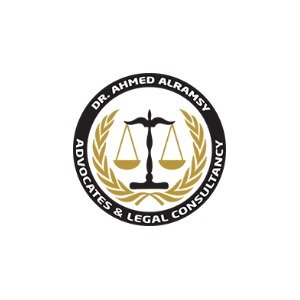Best Sanctions & Export Controls Lawyers in Abu Dhabi
Share your needs with us, get contacted by law firms.
Free. Takes 2 min.
List of the best lawyers in Abu Dhabi, United Arab Emirates
About Sanctions & Export Controls Law in Abu Dhabi, United Arab Emirates
Sanctions and export controls in Abu Dhabi, and across the United Arab Emirates (UAE), are part of a complex legal framework intended to ensure national security, meet the country’s international obligations, and regulate the cross-border movement of goods, technology, and services. These laws restrict or prohibit dealings with specific countries, entities, or individuals and control the export, re-export, transfer, or transit of particular goods, especially those with potential military applications or dual-use technology.
Abu Dhabi, as the capital and a leading hub for business and trade, closely enforces both UAE federal laws and United Nations Security Council (UNSC) resolutions relating to sanctions. The UAE also aligns with other international sanctions regimes, such as those implemented by the European Union or the United States, where applicable. Failure to comply with these rules can have severe regulatory and criminal consequences, ranging from heavy fines to imprisonment.
Why You May Need a Lawyer
Navigating the sanctions and export controls landscape in Abu Dhabi can be challenging due to the rapidly changing global environment and strict compliance requirements. Common situations where legal assistance may be necessary include:
- Launching or running an import/export business in the UAE and wanting to ensure full compliance
- Trading in dual-use items, sensitive technology, or high-risk goods
- Engaging in business with countries, companies, or individuals subject to international sanctions
- Receiving a customs inquiry, audit, or notification of a suspected violation
- Seeking licenses for controlled goods or technologies
- Responding to investigations by local or international authorities
- Drafting contracts where export control clauses are necessary
- Facing disputes or regulatory penalties in connection with alleged violations
A lawyer experienced in sanctions and export controls can clarify your obligations, help you minimize risks, and represent you in proceedings with regulators.
Local Laws Overview
Sanctions and export controls in Abu Dhabi are governed by UAE federal laws and local regulations. Key aspects include:
- UAE Federal Laws: The principal legal instruments include Federal Law No. 13 of 2007 on Commodities Subject to Import and Export Control, and Cabinet Resolution No. 50 of 2018 regarding the UAE list of controlled materials.
- Implementation of UNSC Sanctions: The UAE enforces sanctions imposed by the United Nations, including measures against specific countries and individuals.
- Export Control Lists: Detailed lists identify dual-use goods, military equipment, nuclear materials, and other controlled items.
- Licensing System: Entities seeking to export, re-export, or transfer controlled goods must obtain licenses from the relevant authorities, such as the Ministry of Economy or the Federal Authority for Nuclear Regulation.
- Customs Enforcement: Abu Dhabi Customs actively monitors inbound and outbound shipments for compliance, and violations may result in confiscation, penalties, or prosecution.
- Anti-Money Laundering and Terrorism Financing Rules: Businesses must comply with regulations prohibiting dealings that could support illicit activities, money laundering, or terrorism financing.
It is important to note that laws and regulations are updated regularly to adapt to shifting international requirements.
Frequently Asked Questions
What are sanctions and export controls?
Sanctions are legal measures that restrict or prohibit certain activities with specific countries, individuals, or entities. Export controls are regulations that govern the transfer of specified goods, technologies, or services across borders, especially those with potential national security implications.
Who enforces sanctions and export controls in Abu Dhabi?
Sanctions and export controls in Abu Dhabi are primarily enforced by UAE federal agencies, including the Ministry of Economy, Abu Dhabi Customs, and the Central Bank of the UAE, working in tandem with international organizations such as the United Nations.
Do I need an export license to ship goods from Abu Dhabi?
If your goods are on the UAE’s controlled or dual-use item lists, or if your transaction involves a sanctioned individual or country, you will need to secure an export license from the proper authorities before shipping.
What are the penalties for violations?
Penalties can range from administrative fines and the seizure of goods to criminal prosecution, which could result in imprisonment and substantial financial penalties. License revocation and potential blacklisting may also occur.
Are individuals or only companies subject to sanctions laws in Abu Dhabi?
Both individuals and companies are subject to UAE sanctions and export controls laws. Responsibility can extend to directors, officers, and other staff involved in relevant activities.
How do I check if a product is controlled or subject to export restrictions?
You should consult the latest versions of the UAE’s export control lists, which outline goods and technologies subject to regulation. Legal counsel or official authorities can assist in determining whether your product is covered.
Can sanctions apply to services and technology transfers, not just physical goods?
Yes, UAE law extends export controls and certain sanctions to the provision of services, technical assistance, software, and technology transfer, especially through digital means.
What should I do if I suspect I am dealing with a sanctioned party?
You should immediately suspend dealings with the party and seek legal advice to conduct due diligence and determine the appropriate course of action, including possible self-reporting to authorities.
Are there exceptions or exemptions to export controls in Abu Dhabi?
Some exceptions may exist, such as for humanitarian purposes or under certain licensing conditions, but these are strictly regulated. Legal advice is crucial to pursuing any exemption.
How often do the rules change, and how can I stay updated?
Sanctions and export controls rules are subject to frequent updates based on international developments. Regular consultation with legal professionals, subscribing to government bulletins, and engaging in compliance training are recommended for staying informed.
Additional Resources
For those seeking further guidance, the following organizations and authorities are key resources regarding sanctions and export controls in Abu Dhabi:
- Ministry of Economy - Responsible for issuing export control licenses
- Abu Dhabi Customs - Monitors imports and exports at ports and borders
- UAE Central Bank - Regulates financial sectors in accordance with sanctions rules
- Federal Authority for Nuclear Regulation - Oversees nuclear and radioactive materials
- Ministry of Foreign Affairs - Issues information on United Nations and international sanctions
- Abu Dhabi Chamber of Commerce and Industry - Provides guidance to businesses on regulatory compliance
Consulting official publications from these bodies is often the best way to obtain accurate and current information.
Next Steps
If you believe you need legal assistance with sanctions and export controls in Abu Dhabi, consider taking the following steps:
- Gather all relevant documentation about your goods, business activities, and counterparties
- Consult with a qualified legal professional experienced in UAE sanctions and export controls law
- Request a compliance review or risk assessment tailored to your business or transaction
- If facing an investigation, respond promptly and only after seeking legal advice
- Stay proactive by subscribing to updates from local authorities and arranging regular compliance training
Prompt and knowledgeable legal counsel can help you avoid costly mistakes and ensure your operations are fully compliant with Abu Dhabi and UAE law.
Lawzana helps you find the best lawyers and law firms in Abu Dhabi through a curated and pre-screened list of qualified legal professionals. Our platform offers rankings and detailed profiles of attorneys and law firms, allowing you to compare based on practice areas, including Sanctions & Export Controls, experience, and client feedback.
Each profile includes a description of the firm's areas of practice, client reviews, team members and partners, year of establishment, spoken languages, office locations, contact information, social media presence, and any published articles or resources. Most firms on our platform speak English and are experienced in both local and international legal matters.
Get a quote from top-rated law firms in Abu Dhabi, United Arab Emirates — quickly, securely, and without unnecessary hassle.
Disclaimer:
The information provided on this page is for general informational purposes only and does not constitute legal advice. While we strive to ensure the accuracy and relevance of the content, legal information may change over time, and interpretations of the law can vary. You should always consult with a qualified legal professional for advice specific to your situation.
We disclaim all liability for actions taken or not taken based on the content of this page. If you believe any information is incorrect or outdated, please contact us, and we will review and update it where appropriate.

















